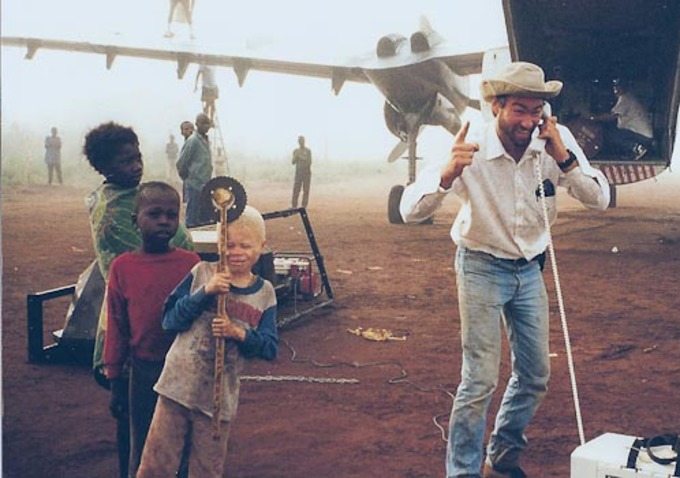
 In 1994 over a quarter of a million refugees escaped Rwanda and settled in what was then the country of Zaire (now the Democratic Republic of Congo). Without access to fresh water, food, and graves to bury their dead, settlers started succumbing to a devastating cholera epidemic. This epidemic became one of the most serious humanitarian crises of all time, moving doctors and volunteers from all over the world to reach out to the people in need. One of these groups was Operation Blessing, a charity set up by televangelist Pat Robertson through donations from his “700 Club” television show. According to statements made by Robertson on national television, people from his group were among the first to arrive and help control the epidemic. Their help becoming an essential part of the humanitarian work...the problem is none of this ever really occurred.
In 1994 over a quarter of a million refugees escaped Rwanda and settled in what was then the country of Zaire (now the Democratic Republic of Congo). Without access to fresh water, food, and graves to bury their dead, settlers started succumbing to a devastating cholera epidemic. This epidemic became one of the most serious humanitarian crises of all time, moving doctors and volunteers from all over the world to reach out to the people in need. One of these groups was Operation Blessing, a charity set up by televangelist Pat Robertson through donations from his “700 Club” television show. According to statements made by Robertson on national television, people from his group were among the first to arrive and help control the epidemic. Their help becoming an essential part of the humanitarian work...the problem is none of this ever really occurred.
In the revelatory “Mission Congo”, filmmakers David Turner and Lara Zizic reveal how Robertson used the funds raised by the charity to run a diamond mining operation in Congo. Through news footage and exclusive interviews, the film shows Robertson working with some of the most notorious criminals in the region, including Théoneste Bagosora (who was later convicted for crimes against humanity) that show Robertson had no interest in helping a cause other than himself. Acts such as these have Robertson being condemned of “criminal irresponsibility” by Barbara Mulvaney who prosecuted Bagosora and to make matters worse, the film exposes how Robertson keeps collecting money in the name of Operation Blessing.
Fascinated with the concept of blind faith and the terrifying liaison between politics and organized religion, “Mission Congo” goes beyond being an exposé of Robertson’s fraud, instead becoming an essay on the way in which capitalism dehumanizes those who are supposed to be helping humankind the most. How can you defend someone who bragged about his connection to the divine by establishing that “you don’t tax god”? As fraud investigator Ole Anthony suggests at one point, “there is more fraud committed in the name of God than any other”. Yet “Mission Congo” doesn’t only concentrate on angering audiences, in revealing Robertson’s lies about his work with refugees, it also becomes a celebration of those who actually assisted and helped; people like Samantha Bolton of Doctors Without Borders and members of other organizations who didn’t allow ambition to come between them and work that would make real Christians, or plain decent human beings for that matter, feel proud.